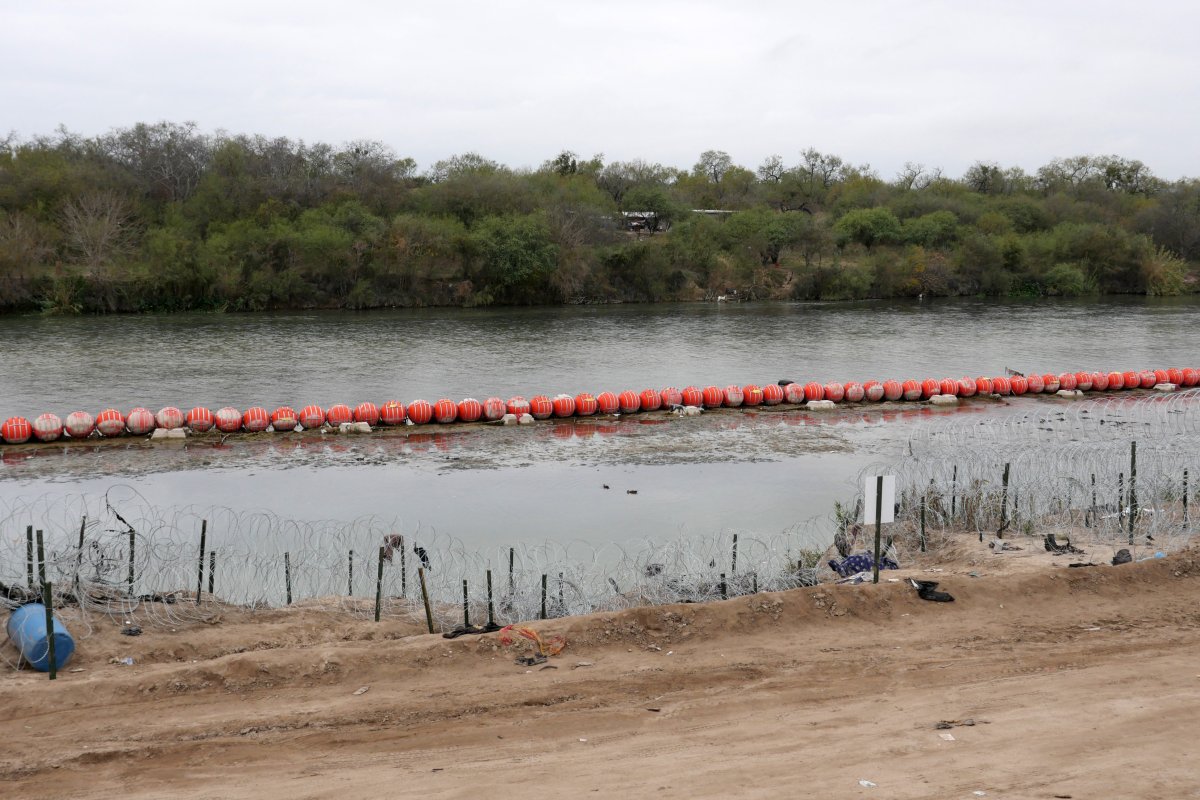A federal judge presiding over the legal battle between Texas and the Biden administration regarding the legality of floating buoys to deter migrant crossings said the case would be headed to the Supreme Court regardless of the trial court’s decision.
The dispute is part of the ideological battle between the Abbott and the Biden administration amid the surge in migration at the southern border last year.
Speaking to lawyers during a pretrial conference in the state’s capital, Austin, senior U.S. District Judge David Alan Ezra said, “This case will end up in the Supreme Court,” according to the Austin American-Statesman.
Newsweek reached out to the U.S. District Court of the Western District of Texas for comment via email on Wednesday.
The case, United States v. Abbott is centered around the Biden administration’s claim that Republican Governor Greg Abbott‘s 1,000-foot chain of buoys near Eagle Pass, Texas, violates the Rivers and Harbors Act, which prevents states from blocking a “navigable water of the United States.”
“The Rio Grande River is not navigable within the meaning of the RHA at the location of the Floating Buoy Barrier,” the state’s filing states.

A string of buoys is pictured in the Rio Grande at the US-Mexico border in Eagle Pass, Texas on August 25, 2023.
FRANCOIS PICARD/AFP via Getty Images
As part of Operation Lone Star, a multibillion-dollar initiative launched by Abbott in March 2021, the state deployed thousands of Texas National Guard soldiers and placed razor wire along the border. In 2023, large floating buoys, separated by circular saw-like sheets of metal, were placed in the Rio Grande to deter river crossings that the state called “illegal, dangerous—and in some cases, deadly.”
Abbott has repeatedly proposed and enacted stringent border policies and has been critical of this administration’s approach.
President Joe Biden strongly condemned the actions, and the government filed a lawsuit in July 2023 against Texas to have the barrier removed. The administration says the barriers pose humanitarian, environmental, and navigational concerns.
Shortly after, a district court issued a preliminary injunction forcing the state to remove the floating barrier, finding it was not properly authorized by the federal government. But on July 30, in a major victory for Texas, the Fifth Circuit Court of Appeals ruled in favor of Abbott, finding that the lower district court erred in granting a preliminary injunction that forced the state to remove the floating barrier.
“The buoys can remain in the river. I will continue to defend Texas’s right to protect its border from illegal immigration,” Texas Attorney General Ken Paxton said in response to the ruling.
Abbott posted on X, formerly Twitter, “Texas WON. We will never back down in our fight to secure our border.”
Last night, the 5th Circuit ruled that Texas can keep our buoys in the Rio Grande.
The Biden-Harris Admin sued to remove them & obstruct our efforts to secure the border.
Instead, Texas WON.
We will never back down in our fight to secure our border. pic.twitter.com/LLn02B6lQk
— Greg Abbott (@GregAbbott_TX)
Judge Ezra’s comments come amid widespread expectations that whichever party loses the legal dispute will likely appeal, potentially bringing the case to the Supreme Court. In 2023, Abbott posted on X, “Texas is prepared to take this fight all the way to the Supreme Court.”
Newsweek filed out online media request forms with the Texas Attorney General’s office, U.S. Attorney General’s office, and Abbott’s office for comment on Wednesday.
On Tuesday, Ezra ruled that the state should send a high-ranking lawyer in person to the court hearing and not try to attend remotely. His order followed a hearing on Tuesday in which a lawyer for Texas appeared by video screen.